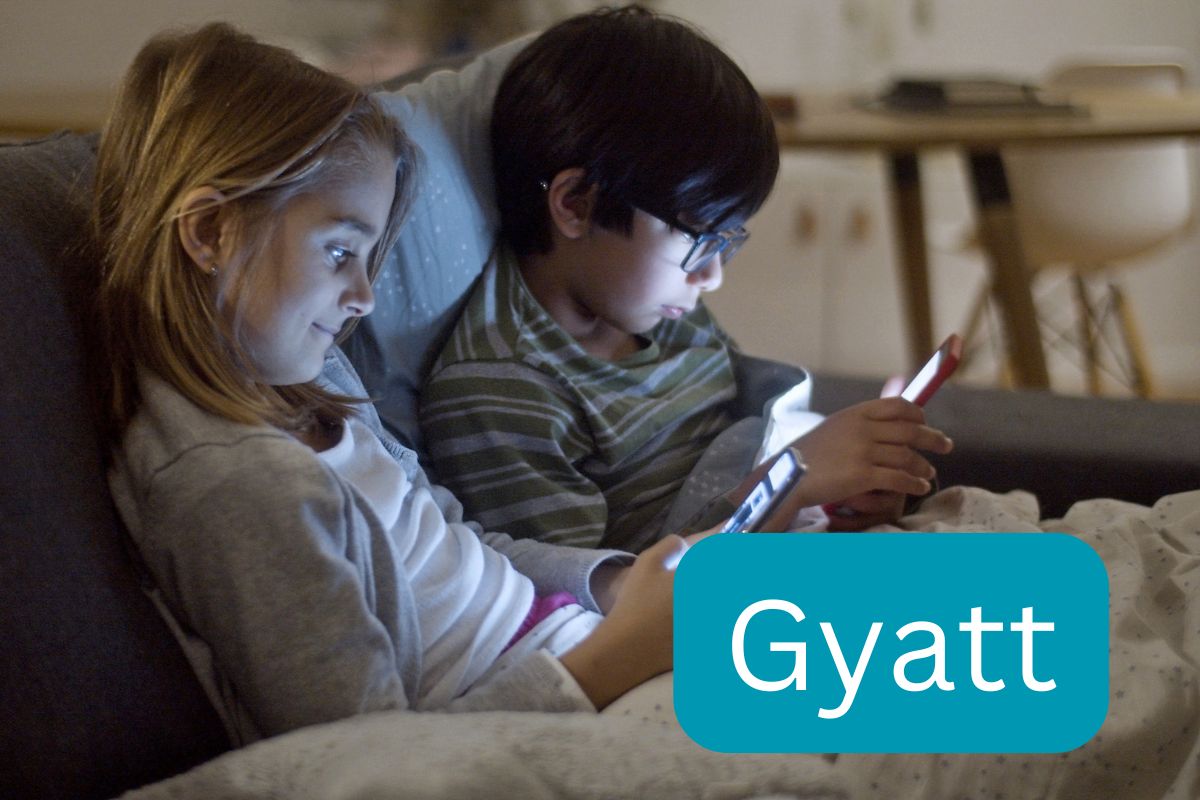As moms, we know how fast the language of our kids changes. One day, they’re saying “cool” and “lit,” and the next, you’re hearing words like “gyatt.” So, what does “gyatt” or “gyat” actually mean? You’re not alone in wondering. This term has been popping up more and more, especially among middle schoolers and teens. Whether your child has been dropping it in their conversations or you’ve encountered it on social media, we’re here to break it down.
Here, we’ll explore what “gyatt” means, its origin, how it differs from similar slang, and why it’s become a part of your kids’ everyday language.
What Does Gyatt Mean?
First things first: “gyatt” or “gyat” is an abbreviation typically used as an exclamation of admiration or surprise, particularly towards someone’s physical appearance. It’s commonly directed at girls or women. The phrase originates from the slang term “Goddamn” or “Gosh-darn” but has been shortened for quicker use online and in texting.
While it might seem innocent, it’s often used in contexts that objectify women. Many kids use it as a part of their social media vocabulary without realizing the potential implications.
Origin of Gyatt
The origin of “Gyatt” can be traced back to social media platforms like TikTok and Instagram. It emerged as a trendy way to express surprise or approval, especially when someone comes across an attractive person in their feed. Young people, particularly middle-schoolers, have adopted it into their everyday vocabulary.
You might hear it in a sentence like: “Yo, gyatt, did you see her?” This is essentially shorthand for “Goddamn, she’s attractive” or a similar sentiment.
Its use has exploded in popularity, especially in online communities like TikTok and Twitch, where streamers and their followers have normalized the term.
Gyat vs Gyatt: Is There a Difference?
If you’ve been trying to figure out if “gyat” and “gyatt” are the same thing, the short answer is yes, mostly. Both terms mean the same thing, and the spelling difference seems to be personal preference. Some people use “gyat”, while others go with “gyatt”, but they both hold the same meaning and are used in the same context.
It’s similar to how people abbreviate words differently based on texting or social media habits.
How Middle-Schoolers Are Using "Gyatt"
As parents, it’s important to understand how terms like “gyatt” are being used in your child’s circle. Most of the time, kids use slang without fully grasping its meaning. They see their friends using it or come across it on TikTok, and suddenly, it’s part of their lexicon.
In middle school, kids are all about fitting in and being “in the know.” When a trendy new slang term emerges, it spreads like wildfire. “Gyatt” is no exception. Your child might be using it to express surprise or admiration without any real intent behind the objectification that often accompanies it.
It’s essential to have an open conversation about what words mean and the impact they can have, especially when they start using slang that carries objectifying or sexual undertones.
Why Has "Gyatt" Become Part of Kids' Language?
Language evolves quickly, especially with the rise of social media. Apps like TikTok allow trends, including slang, to travel rapidly from one corner of the internet to another. Terms like “gyatt” become viral within days, and before you know it, they’re part of your kid’s daily conversation.
Kids adopt these words because they hear their peers using them. It’s a way to be cool, fit in, and seem current. Since “gyatt” is often used in a positive, albeit objectifying, context, it appeals to young teens navigating the social intricacies of growing up.
What You Should Know as a Parent
As with any trend, it’s important to take a proactive approach when you hear new slang in your household. The word “gyatt” might not seem harmful at first, but it’s part of a broader culture that can reduce people, especially women, to their physical appearance.
Here’s how to approach it with your child:
- Ask what they think it means. This will give you insight into how they’re using it and whether they understand its implications.
- Explain the context. Many kids use slang without fully understanding its meaning. Help them see why it’s important to think critically about the words they use, especially if those words contribute to a culture of objectification.
- Encourage respect in communication. Slang is fun, but it’s important that kids learn to communicate respectfully. By pointing out the objectifying nature of words like “gyatt”, you can encourage them to think twice before using them.
Other Trending Slang Terms You Might Hear
Besides “gyatt”, plenty of other slang terms are making the rounds among middle schoolers and teens. Some have positive meanings, while others might raise an eyebrow. Here are a few you might want to be aware of:
- “No cap”: Meaning “no lie” or “I’m serious.”
- “Sus”: Short for “suspicious” or “acting shady.”
- “Bet”: Used to confirm or agree with something, like saying “Okay” or “I agree.”
- “Lit”: Something exciting or fun.
Understanding these terms can help you stay in the loop and better understand how your child communicates with their friends.
How to Talk to Your Kids About Slang
The conversation about slang with your middle schooler doesn’t have to feel like a confrontation. Here are some tips to help make it a productive discussion:
- Stay curious, not judgmental. Ask your child what a word means before jumping to conclusions.
- Use it as a teachable moment. Explain the importance of language and how it can affect others, especially when words carry negative or objectifying connotations.
- Respect their world. While you want to guide them, it’s also important to acknowledge that slang is part of their social culture. You don’t have to ban it outright, but you can help them navigate how to use it appropriately.
Final Words on Gyatt Meaning
While “gyatt” might seem like just another trendy term, it’s important to understand the context in which it’s being used. Language matters, especially when it comes to the way we talk about and to others. As moms, our role is to guide our children through the complexities of communication in a world where new slang terms pop up every day.
By staying informed and having open conversations with your kids, you can help them become more mindful of the words they use and the impact they have. So the next time you hear “gyatt” or any other slang term, you’ll be ready to have that conversation.





